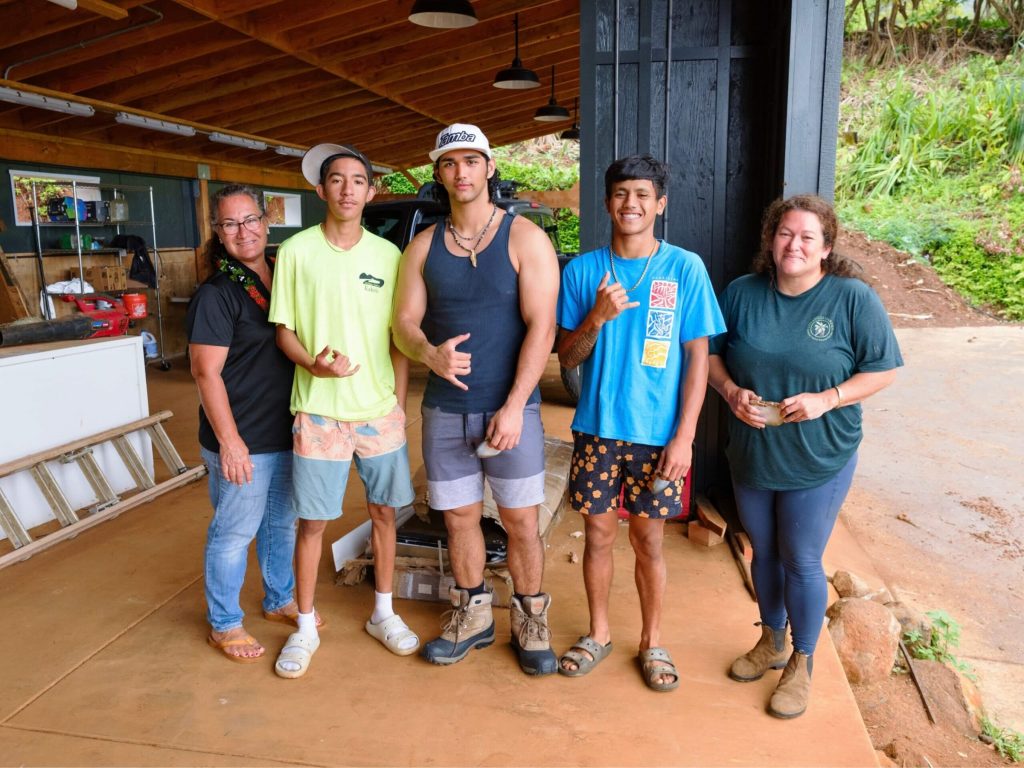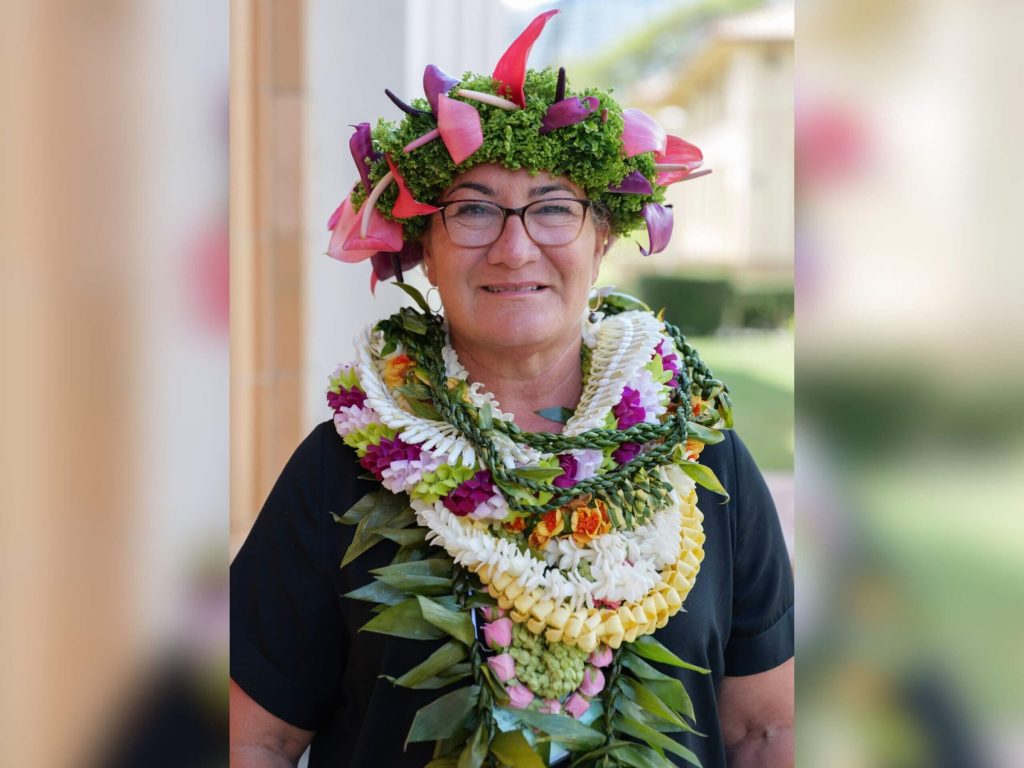Giving Hawaiians back their voice: Kauaʻi educator sees a Hawaiʻi where hearing Hawaiian is ‘just normal’

Mālia ʻAlohilani Kuala Rogers, or ʻAlohilani, as she prefers to be called, remembers her gut reaction when she heard her grandma talk about not being allowed to speak Hawaiian.
“Hearing the story of my grandmother and [her] being punished for speaking Hawaiian in Hawaiʻi, it made me feel like there was a responsibility that I had,” Rogers said in a recent Hawaiʻi State Teachers Association media announcement.
She put it on herself — and her family — from that point forward to do something so it would never happen again.
“This wasn’t right, and we had to fix it,” Rogers said.
She has now spent the past 32 years — her entire career — as a Hawaiian immersion teacher to ensure the children of Hawaiʻi can once again speak Hawaiian.
Rogers was recently honored for her longtime unwavering dedication to preserving and perpetuating Hawaiian language and customs with her students by being named winner of the 2025 Hawaiʻi State Teachers Association STACY Award for Teaching Excellence.
She was presented the award during the association’s annual state convention April 12.
Established in honor of the exemplary work of the late Stacy Nishina, an outstanding public school teacher and longtime association staff member, the STACY Award celebrates a teacher who demonstrates leadership, dedication and passion in five categories:
- Scholarship.
- Teaching.
- Advocacy.
- Community
- Youth.
It is one of the highest honors bestowed upon a teacher by the union.
Rogers’ first teaching positions were at Kapaʻa Elementary School and Kapaʻa Middle School.
Her grandmother’s story would further inspire her in 2008 to help open Kawaikini Public Charter School, a Hawaiian immersion school in Līhuʻe, where she has been a Hawaiian immersion and resource teacher since.
“That’s why we started the school,” Rogers said. “We wanted to have some place where it was just normal to hear the Hawaiian language being spoken.”
Her goal is to instill in her students at Kawaikini a sense of belonging and pride in their Hawaiian heritage.
“I want them to leave knowing that, to be proud of where they come from and being proud of where they’ve grown up, and this unique culture here in Hawai’i, and the Hawaiian language, is a huge part of that,” she said. “So I would hope that the students leave believing in themselves and believing in who they are and where they come from can take them wherever they want to go.”
Rogers also thinks hands-on, ʻāina-based learning is “authentic learning, and it makes sense to do it in an authentic place.”
“That’s one of the philosophies that drive me as a teacher, too, that if any, every possible way we can have an authentic learning experience, that’s what we’re going to do,” she said. “The ōlelo noʻeau [Hawaiian proverb] that works with that is ‘Ma ka hana ka ʻike,’ so it’s in the work that you know or that you learn the knowledge.”
One way Rogers exemplifies this is by helping her 12th-grade students with their graduation ceremony adornments such as:
- Making their kīhei (shawl) that they will wear during graduation ceremonies.
- Creating the bamboo stamps that adorn the kīhei.
- Making colors for the kīhei out of plant paints.
- Making their maile lei.
- Helping with their ʻawa ceremony and oli (Hawaiian chant).
Her resource work includes helping with the school’s Western Association of Schools and Colleges, Accrediting Commission for Schools accreditation process. She is a teacher leader as well, often mentoring new educators.
The longtime teacher even gets involved in advocating for education and her fellow teachers outside the classroom.
Rogers serves on the Hawaiʻi State Teachers Association’s Hawaiian Education Special Committee, and recently traveled to Washington, D.C., to speak out and stand up for Hawaiian education.
She often travels to Oʻahu and walks the halls of the state Capitol in Honolulu to be a champion for and boost policies and measures that will benefit and support the state’s educators, schools and Hawaiian immersion as a whole.
“We have such wonderful teachers with that passion, not just at our school, but just teachers in general, with that passion to see kids succeed, to help them move forward and for the language to live,” Rogers said.
Whatever she can do to move the teaching profession and learning forward, Rogers said all of it is about helping the kids.
“If we can do a better job as teachers, then the kids benefit,” she said.
As the recipient of this year’s award, Rogers will be Hawaiʻi State Teachers Association’s nominee for the National Education Association Foundation’s Horace Mann Award for Teaching Excellence and National Education Association Member Benefits Award.







